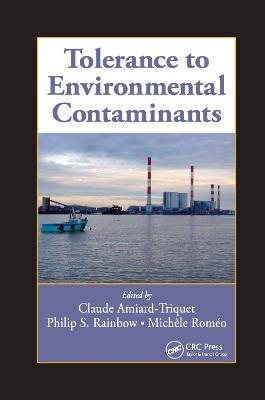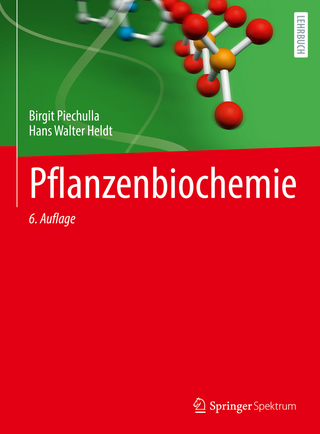
Tolerance to Environmental Contaminants
CRC Press (Verlag)
978-0-367-38311-4 (ISBN)
Tolerance to Environmental Contaminants takes a multidisciplinary approach across contaminant types, habitats, organisms, biological levels of organization and scientific disciplines. The book examines the general principles governing the acquisition and biological consequences of tolerance, genetically or physiologically based, at different levels of biological organization, taxonomically from bacteria and archaea to flowering plants and vertebrates, and within organisms from molecular biology and biochemistry through physiology to whole organism, community, and ecosystem levels of organization.
Presenting a state-of-the-art synthesis of the many aspects of the phenomenon of tolerance to environmental contaminants, this volume covers mechanisms of defense involved in the acquisition of tolerance, different classes of environmental contaminants, positive and negative ecological consequences of tolerance and the impact of tolerance in bacteria, plants, and insects on society. The reviews presented in this book supply the tools for carrying out more informed and therefore more reliable risk-benefit analyses when assessing the ecotoxicological risks to life in any of the contaminated habitats that now surround us in our industrialized society.
Claude Amiard-Triquet, Philip S. Rainbow, Michèle Roméo
Pollution Tolerance: From Fundamental Biological Mechanisms to Ecological Consequences. Tolerance to Contaminants: Evidence from Chronically-Exposed Populations of Aquatic Organisms. Inter- and Intra-Specific Variability of Tolerance: Implications for Bioassays and Biomonitoring. Microbial Pollution-Induced Community Tolerance. Tolerance to Natural Environmental Change and the Effect of Added Chemical Stress. Mechanisms of Defence and the Acquisition of Tolerance to Chemical Stress. Biodynamic Parameters of the Accumulation of Toxic Metals, Detoxification and the Acquisition of Metal Tolerance. Antioxidant Defences and Acquisition of Tolerance to Chemical Stress. Biotransformation of Organic Contaminants and the Acquisition of Resistance. Stress Proteins and the Acquisition of Tolerance. The Multixenobiotic Transport System: A System Governing Intracellular Contaminant Bioavailability. Ecological and Ecophysiological Aspects of Tolerance. Tolerance and Biodiversity. Cost of Tolerance. Tolerance and the Trophic Transfer of Contaminants. Case Studies. Bacterial Tolerance in Contaminated Soils: Potential of the PICT Approach in Microbial Ecology. Adaptation to Metals in Higher Plants: The Case of Arabidopsis halleri (Brassicaceae). Insects and Pesticides. Conclusions.
| Erscheinungsdatum | 24.09.2019 |
|---|---|
| Verlagsort | London |
| Sprache | englisch |
| Maße | 156 x 234 mm |
| Gewicht | 635 g |
| Themenwelt | Naturwissenschaften ► Biologie ► Biochemie |
| Naturwissenschaften ► Biologie ► Ökologie / Naturschutz | |
| ISBN-10 | 0-367-38311-X / 036738311X |
| ISBN-13 | 978-0-367-38311-4 / 9780367383114 |
| Zustand | Neuware |
| Haben Sie eine Frage zum Produkt? |
aus dem Bereich


